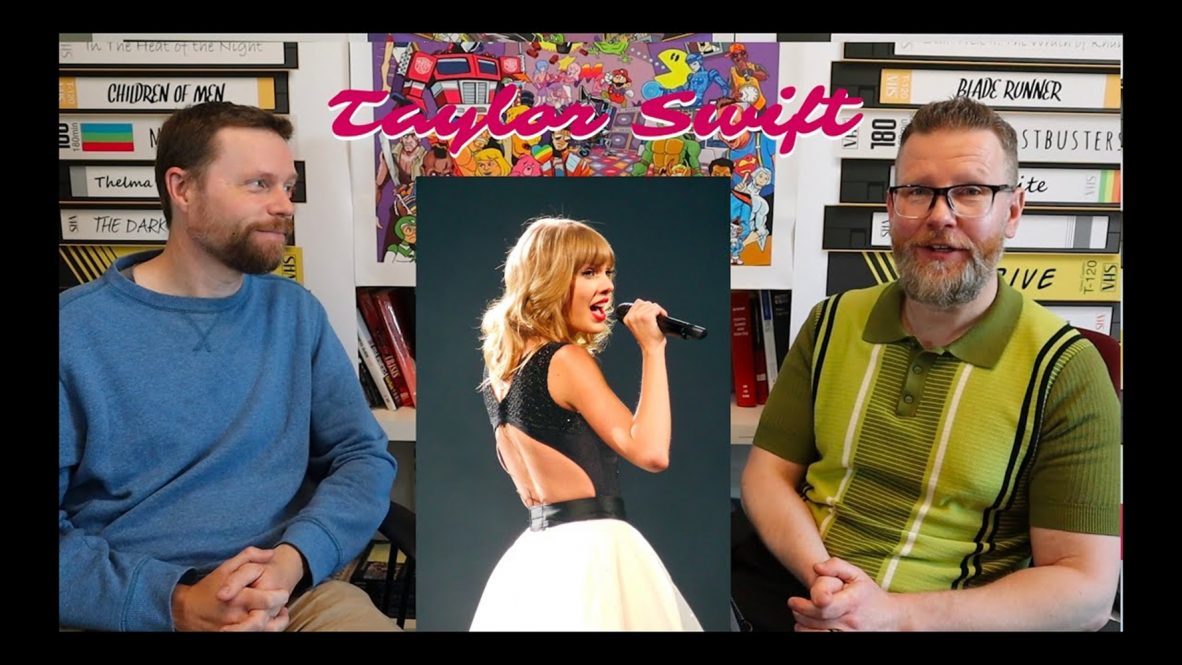Two professors of political science at UConn analyze popular culture through the lens of the humanities

Professors Jeffrey Dudas and Stephen Dyson use their podcast to make major themes and issues in popular culture accessible to a large audience (courtesy of the UConn Popcast).
While they've been coworkers and friends for years, two political science professors in the University of Connecticut's College of Liberal Arts and Sciences have established another level of depth to their relationship: hosting a podcast about popular culture and politics.
Jeffrey Dudas, a professor of political science and affiliate faculty of American studies, joined UConn in 2004. His studies focus on law, politics, and cultural themes and sets of values for communities. These, he says, directly tie to the broader study of popular culture, which he's been looking into more closely for the last five years.
When Stephen Dyson, a professor of political science and the director of the Humanities House Learning Community, joined UConn in 2007, the pair hit it off immediately. Dyson's interest in popular culture began when he "got bored" with what he calls traditional political science, and began using popular culture in his teaching and research.
With their shared interest, Dyson and Dudas view their UConn Popcast as an iteration of their many conversations relating political science and other topics in the humanities to each other. "Contrary to appearances, we don't just run our mouths," Dyson laughs. Dudas agrees: "You have to do a bunch of work to make it look like you haven't done anything."
When the first episode launched in August of 2022, the UConn Popcast was actually called "UConn Polipop," and was created as promotional material for UConn's Master's degree program in Politics and Popular Culture.
"Of course, the idea was totally mine," Dyson jokes, to which Dudas notes that their friendship works well because he's been able to tell when Dyson is lying "from the get-go."
"We didn't necessarily have money to advertise [the Master's degree], but we had this," Dudas adds.
In addition, teaching during the pandemic made the jump to podcasting easier for the pair.
"We got pretty comfortable in front of the camera and listening to ourselves," Dyson says.
The name-change from UConn Polipop to UConn Popcast came about to allow the discussions to branch out into a broader set of issues and topics.
"We were running across texts or movies that were not really obvious where the political science was, but they were still meaningful, so instead of shoehorning politics into something, this freed us up to not worry specifically about finding the political science aspect," Dudas says.
Each episode of the UConn Popcast - which releases roughly once a month, though this can be a hard goal to hit for the busy professors - utilizes a three-part framework to analyze a piece of popular culture as a "text." Dyson and Dudas prepare notes ahead of time, before sitting down and hitting the record button.
As for the three-part framework, it resembles the pairs' teaching style.
First, Dyson explains, they look into the text "on the surface" - asking, "What did the author of the thing explicitly put into the work?" before diving into the "mythologies," or the "structures groups or societies might bring to decode or understand the texts."
Finally, they look into a "level of critique," or as Dudas explains, "offering a take on the text that is often unusual or distinctive."
"We try to give a sense of what critics have made of whatever we're talking about, and frequently disagree with the accepted criticisms," Dudas says.
Dyson and Dudas have used this framework for a variety of episodes on a wide range of topics, including Taylor Swift and Olivia Rodrigo, James Bond movies, reality television, and even the recent Netflix adaptation of "Three Body Problem."
Navigating Youtube's algorithm while posting each episode has been an interesting yet fun challenge, Dyson notes.
"The algorithm is a total mystery," he says. "The most exciting time of my life is watching the views, seeing how early I can tell how an episode will perform."






